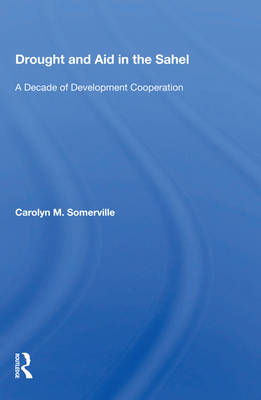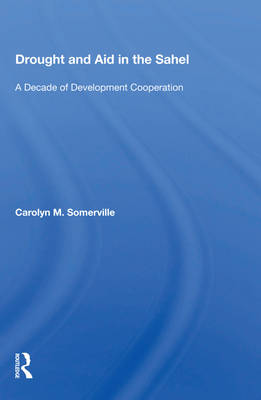
Door een staking bij bpost kan je online bestelling op dit moment iets langer onderweg zijn dan voorzien. Dringend iets nodig? Onze winkels ontvangen jou met open armen!
- Afhalen na 1 uur in een winkel met voorraad
- Gratis thuislevering in België vanaf € 30
- Ruim aanbod met 7 miljoen producten
Door een staking bij bpost kan je online bestelling op dit moment iets langer onderweg zijn dan voorzien. Dringend iets nodig? Onze winkels ontvangen jou met open armen!
- Afhalen na 1 uur in een winkel met voorraad
- Gratis thuislevering in België vanaf € 30
- Ruim aanbod met 7 miljoen producten
Zoeken
Drought and Aid in the Sahel
A Decade of Development Cooperation
Carolyn M Somerville
Hardcover | Engels
€ 182,45
+ 364 punten
Uitvoering
Omschrijving
The 1968-1974 drought in the Sahel was an unprecedented catastrophe for the region, causing extensive crop failures, loss of human and animal populations, political instability, and the destruction of social and cultural structures. The response of the world to the catastrophe began with food aid donations from the Western nations and led to the formation of two cooperative organizations--Comité permanent Inter-états de Lutte contre la Sécheresse dans le Sahel (CILSS, formed by the Sahel states) and the Club du Sahel (formed by donors and the Sahel countries). These organizations have attempted to help the Sahel attain regional food self-sufficiency and to make the region less vulnerable to drought. The recent recurrence of drought in the last three years, however, raises questions about the wisdom and the suitability of the developmenet strategies being pursued and the impact of foreign aid. Dr. Somerville analyzes the successes and failures of the development strategies, aid to the region, and the efforts of Sahelians and donors in overcoming drought and underdevelopment.
Specificaties
Betrokkenen
- Auteur(s):
- Uitgeverij:
Inhoud
- Aantal bladzijden:
- 330
- Taal:
- Engels
Eigenschappen
- Productcode (EAN):
- 9780367008543
- Verschijningsdatum:
- 18/09/2018
- Uitvoering:
- Hardcover
- Formaat:
- Genaaid
- Afmetingen:
- 145 mm x 221 mm
- Gewicht:
- 771 g

Alleen bij Standaard Boekhandel
+ 364 punten op je klantenkaart van Standaard Boekhandel
Beoordelingen
We publiceren alleen reviews die voldoen aan de voorwaarden voor reviews. Bekijk onze voorwaarden voor reviews.











